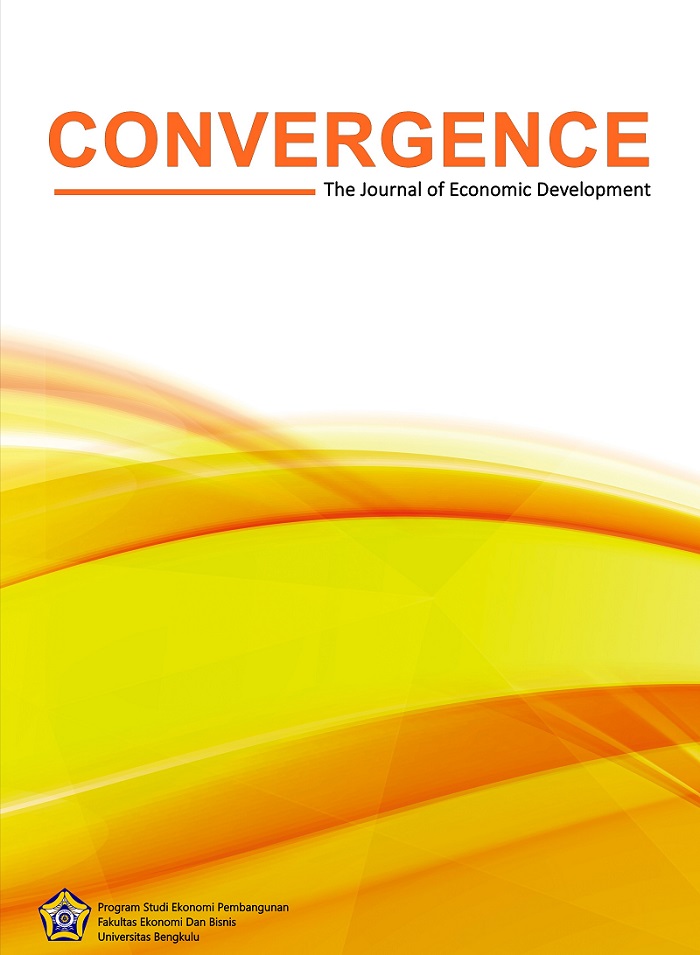Main Article Content
Abstract
This research is a qualitative research which aims to determine the level of understanding and views of the people of Bengkulu City about cash waqf as a solution to poverty alleviation in Bengkulu City. The data used are primary data obtained through questionnaires distributed directly or indirectly (questionnaires online). The results showed that the level of understanding of the people of Bengkulu City about cash waqf was still low and the public view of cash waqf as a solution to poverty alleviation in Bengkulu City was good, where the average Bengkulu City community thought that cash waqf if applied in Bengkulu City would have a positive impact. for the economy in Bengkulu City.
Keywords
Article Details
- This statement is a commitment from the author, to respect copyright, both in terms of quoting the work of others, as well as in the use of journal content.
- If needed, the author can send a statement of authenticity of the manuscript. With the receipt of an article by the Editor of Convergence: The Journal of Economic Development, the article submitted has the copyright held by Convergence: The Journal of Economic Development Convergence:
- The Journal of Economic Development has the right to reproduce and distribute articles that have been published in journals.
- The author is not permitted to publish the same article that has been published in this journal.
References
- Al-arif, M.N. (2012). Efek Multiplier Wakaf Uang dan Pengaruhnya terhadap Program Pengentasan Kemiskinan. Asy-Syir’ah, 46(1)
- Al-arif, M.N. (2012). Wakaf Uang dan Pengaruhnya terhadap Program Pengentasan Kemiskinan di Indonesia. Indo-Islamika, 2(1)
- Ali, K.M., dkk (2018). Aspek-aspek Prioritas Menejemen Wakaf di Indonesia. Al-Falah: Jurnal of Islamic Economics. E-ISSN: 2548-3102
- Bidang Integrasi Pengolahan dan Diseminasi Statistik.(2020). Provinsi Bengkulu dalam Angka 2020. Bengkulu: Badan Pusat Statistik
- Budiman, M.A. (2014). The Significance of Waqf for Economic Development.
- Chapra, M. U. (1933). Reformasi Ekonomi Sebuah Solusi Perspektif Islam. Basri, Ikhwan Abidin. (2018). Solo: Aqwan
- Departemen Ekonomi dan Keuangan Syariah.(2016). Wakaf: Pengaturan dan Tata Kelola yang Efektif. Jakarta: Bank Indonesia
- Handayani, W., & Hadiyanto, H. (2019). Analisis Wakaf Produktif di Provinsi Bengkulu. Bengkulu:Universitas Bengkulu.
- Haryanto, R. (2012). Pengentasan Kemiskinan melalui Pendekatan Wakaf Tunai. Al-Ihkam, 7 (1)
- Hayati, S., & Suryani. (2019). Akuntansi dan Menejemen Wakaf. Jakarta: Selemba Empat
- Hikmat, H. (2004). Strategi Pemberdayaan Masyarakat: Humaniora Bandung
- Huda, N., dkk. (2016). Menejemen pengelolaan wakaf di Indonesia Timur. Ekuitas: Jurnal Ekonomi dan Keuangan. ISSN 1411-0393. Vol 20(1)
- Huda, N. (2020) Kajian Wakaf Uang oleh Badan Wakaf Indoesia (online)
- Khan, M.T. (2014).Constribution of Islamic Waqf in Poverty Reduction.
- Renwarin, R. (2020). Kajian Wakaf Uang oleh Yayasan Edukasi Wakaf Indonesia (online)
- Sugiyono. (2017). Metode Penelitian Kuantitatif, Kualitatif, dan RnD. Bandung: Alfabeta
- Suharto, E. (2006). Membangun Masyarakat Memberdayakan Rakyat. Bandung : PT. Refika Pratama
- Undang-undang Republik Indonesia Nomor 41 Tahun 2004 tentang Wakaf
References
Al-arif, M.N. (2012). Efek Multiplier Wakaf Uang dan Pengaruhnya terhadap Program Pengentasan Kemiskinan. Asy-Syir’ah, 46(1)
Al-arif, M.N. (2012). Wakaf Uang dan Pengaruhnya terhadap Program Pengentasan Kemiskinan di Indonesia. Indo-Islamika, 2(1)
Ali, K.M., dkk (2018). Aspek-aspek Prioritas Menejemen Wakaf di Indonesia. Al-Falah: Jurnal of Islamic Economics. E-ISSN: 2548-3102
Bidang Integrasi Pengolahan dan Diseminasi Statistik.(2020). Provinsi Bengkulu dalam Angka 2020. Bengkulu: Badan Pusat Statistik
Budiman, M.A. (2014). The Significance of Waqf for Economic Development.
Chapra, M. U. (1933). Reformasi Ekonomi Sebuah Solusi Perspektif Islam. Basri, Ikhwan Abidin. (2018). Solo: Aqwan
Departemen Ekonomi dan Keuangan Syariah.(2016). Wakaf: Pengaturan dan Tata Kelola yang Efektif. Jakarta: Bank Indonesia
Handayani, W., & Hadiyanto, H. (2019). Analisis Wakaf Produktif di Provinsi Bengkulu. Bengkulu:Universitas Bengkulu.
Haryanto, R. (2012). Pengentasan Kemiskinan melalui Pendekatan Wakaf Tunai. Al-Ihkam, 7 (1)
Hayati, S., & Suryani. (2019). Akuntansi dan Menejemen Wakaf. Jakarta: Selemba Empat
Hikmat, H. (2004). Strategi Pemberdayaan Masyarakat: Humaniora Bandung
Huda, N., dkk. (2016). Menejemen pengelolaan wakaf di Indonesia Timur. Ekuitas: Jurnal Ekonomi dan Keuangan. ISSN 1411-0393. Vol 20(1)
Huda, N. (2020) Kajian Wakaf Uang oleh Badan Wakaf Indoesia (online)
Khan, M.T. (2014).Constribution of Islamic Waqf in Poverty Reduction.
Renwarin, R. (2020). Kajian Wakaf Uang oleh Yayasan Edukasi Wakaf Indonesia (online)
Sugiyono. (2017). Metode Penelitian Kuantitatif, Kualitatif, dan RnD. Bandung: Alfabeta
Suharto, E. (2006). Membangun Masyarakat Memberdayakan Rakyat. Bandung : PT. Refika Pratama
Undang-undang Republik Indonesia Nomor 41 Tahun 2004 tentang Wakaf
